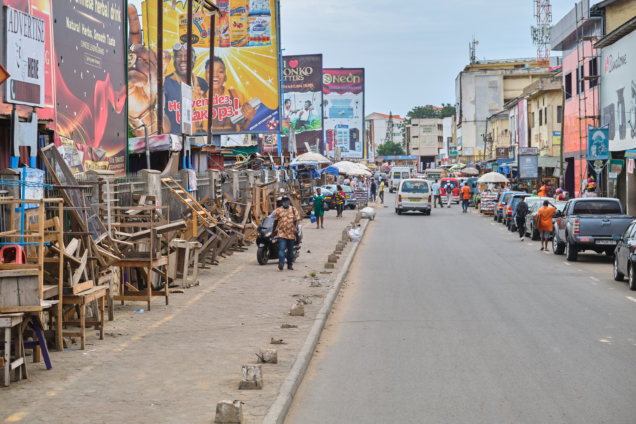President Akuffo Addo’s decision to lift a stay-at-home order in Greater Accra, Greater Kumasi and Tema at a time when transmission of the coronavirus has not been controlled has surprised many. These major cities were placed under a three-week lockdown to prevent the spread of the coronavirus.
As of April 19, 2020, the day on which the President chose to announce his decision, total tested cases were 68,591. Out of this number, total negative cases were 67,549 (98.5%); total positive cases were 1042 (1.5%); recovered cases were 99 (9.5%) and total deaths stood at 9 (0.9%), according to Ghana Health Service data.
Many fear that the President’s decision may be a premature attempt to start the Ghanaian economy and this could trigger a new wave of covid-19 cases, especially as the WHO criteria[1] for lifting lockdowns have not been met.
But we need to recognize that our economy, dominated by informal sector workers, cannot sustain the same lockdown procedures as the West. Many medium, small and micro enterprises (MSMEs), which occupy a dominant role in Ghana’s economic life (constituting 99.8% of enterprises in Ghana),[2] have taken a serious hit as a result of the lockdown and its associated financial constraints. Unlike the middle class, many poor and vulnerable people have struggled to feed their families these past three weeks while the stay-at-home order remained in force.
It is no surprise that low-income earners and many vulnerable people in Ghana have welcomed the President’s decision. Some even took to the streets of Accra to celebrate the lifting of the stay-at-home order.[3]
But as the President indicated in his address, we are not out of the woods yet and we should not interprete the lifting of the lockdown to mean that this public health danger has passed.
Going forward, we need to be more vigilant.
- Government must provide the necessary resources for the National Commission for Civic Education (NCCE), Information Services Department (ISD) and other relevant State institutions to intensify public education about covid-19.
- Government must resource health care institutions and professionals to carry on with tracing, testing, isolation and treatment of cases.
- Government must strictly enforce social distancing rules and the ban on public gatherings, including schools, churches, mosques and other social activities.
- Citizens must maintain good hygiene. Eg. wash your hands, avoid touching your face, etc
The fight against Covid-19 is the shared responsibility of government and citizens. Any abdication of responsibility by either side could prolong this pandemic.
Grace Ayensu-Danquah MD, MPH, FACS, is the NDC Parliamentary Candidate for the Essikado Constituency and a member of the NDC Covid-19 Technical Team.
Latest Stories
-
Champions of 2024 Inter-School Reading Quiz tour Mohammed Bin Rashid Library in Dubai
2 hours -
Mahama decouples Youth from Sports Ministry
2 hours -
President Mahama orders immediate suspension of state land transactions
2 hours -
Edward Bawa: NDC left $2.4bn energy debt, NPP aggravated the situation
2 hours -
Joint military police reinforcement deployed in Ejura
2 hours -
Fire guts 3 shops in Ho
2 hours -
Gunmen attack bus in Bolgatanga, leaving several injured
2 hours -
NDC supporters allegedly invade Bui Power Authority, call for staff removal
2 hours -
‘Cutting ministries is about sentiment, not savings’ – Bright Simmons analyses Mahama’s new Cabinet
2 hours -
Walker wants to ‘explore’ Man City exit – Guardiola
12 hours -
Ejura Sekyeredumase MP demands autopsy on resident who died in Police custody
13 hours -
Kusaas Diaspora Union launched to spearhead global unity, development
15 hours -
Bright Simmons: Mahama’s reduction of ministries to 23 amid calls for efficiency, cost-cutting
15 hours -
Maxwell Hanson seeks apology and compensation from Anim Addo over defamation claims
16 hours -
We listen, we don’t judge: What they don’t tell you about being an entrepreneur
16 hours

